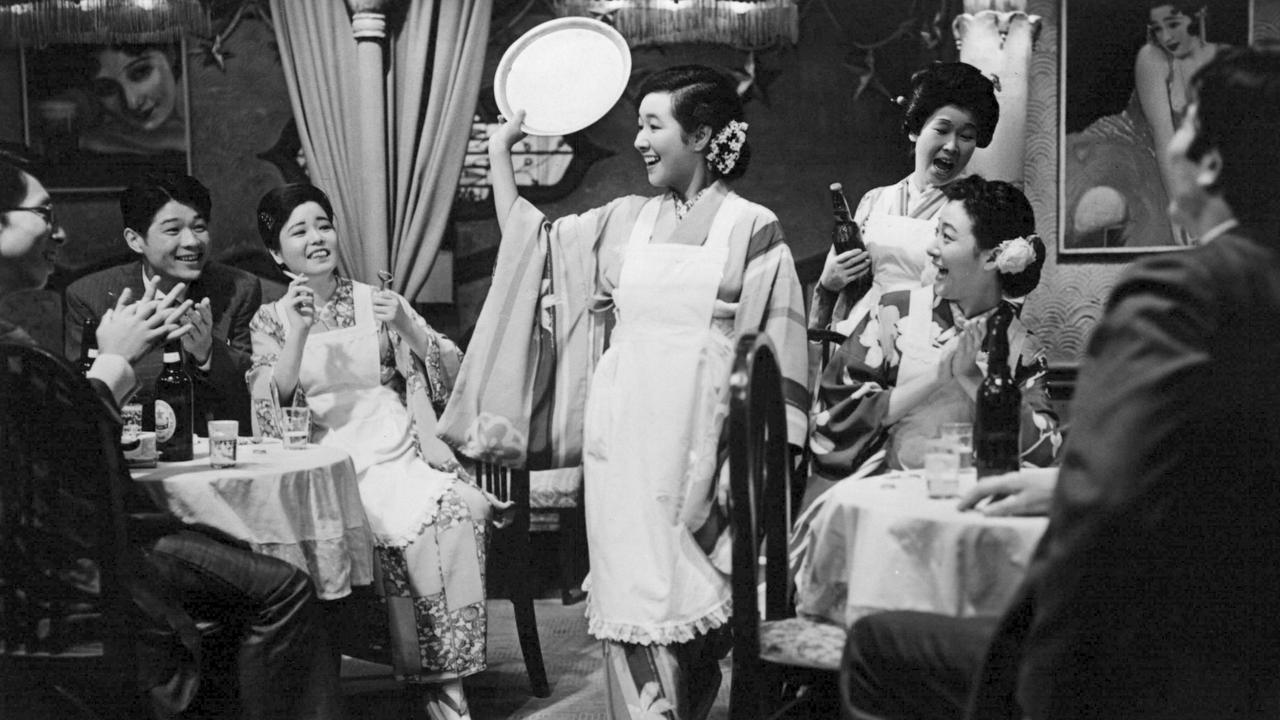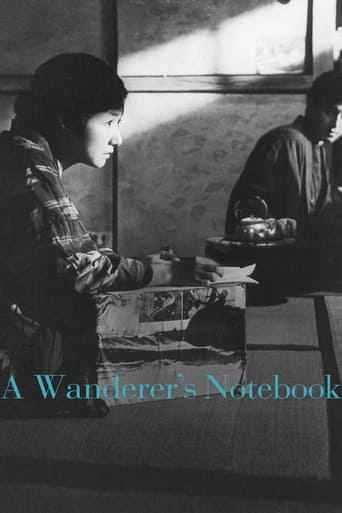

How is it possible that Hideko Takamine can transform herself into this character so easily? My answer is that she was, 100%, an actress of heart. (Unlike so many Japanese actors and actresses these days who can only make faces.) And she does great things with her heart. She was by far one of the most talented actresses in the 20th century not only in Japan but anywhere. After playing several of Fumiko Hayashi's characters, Deko-Chan plays Fumiko Hayashi herself in Hourou-ki. And it is amazing to watch. From the beginning of the movie there is a deep sadness on Fumiko's face; and even when she is expressing other emotions in the movie, that sadness is still there in her face — it never goes away. Wow. I think that unlike most actors and actresses Hidoko Takamine can completely transform herself into her character; erase herself completely
... View MoreSometimes films turn out better than the books on which they are based, and sometimes they are even more literary or more adventurous. Then again, in many cases they aren't. Naruse had a good streak of successful adaptations of Hayashi Fumiko works, but this one falls short of the others. Naruse's previous Hayashi adaptations somehow find a poetics within the boredom, frustration, and regrets of marriage, but it doesn't happen here. This is odd considering that Hayashi's "Horoki" is already quite poetic. Takamine's offscreen readings somehow come off wrong and she is constantly overacting. This is strangely out of character for her and Naruse, who were known for their restraint and control. The film ends up as a grab-bag of documentary episodes from Hayashi's life, but the book is much more. Meh.
... View MoreI've seen four films (None on DVD) of Hideko Takamine, three with director Mikio Naruse, and She certainly must have been one of the dominate Star's of Japanese film in her age. Going by the IMDb, She started in silent film in 29 and then did roughly a movie a year before retiring in 79.Houroki-ki is a good film with a masterful performance from Takamine, She curls her body in a sensual pout whenever sizing up the situation, determined to rise above it even as She feigns not caring. Naruse's work is steady and intelligent and here the film never quite falls into "soap opera", as some of Takamine's vehicles seemed too.I really recommend this one and "The Four Chimneys;" it's about time morewas known in the West of the impressive Ms. Takamine.
... View MoreI saw this film in a horrendous video dub with difficult-to-read subs so I can only recount what I could glean from it. Many of Naruse Mikio's best films were adaptations of books by his favorite author, Hayashi Fumiko ("Lightning" "Late Chrysanthemums" etc.). "A Wanderer's Notebook" (also known as "Lonely Lane" or "Her Lonely Lane") was the final Hayashi film and one of his last before his death in the mid-sixties. Taken from Hayashi's autobiography, it's the story of a cynical, hard as nails female writer living in poverty who falls in love with a real b****rd (the typical unfeeling Japanese man littered throughout Naruse's films), who she knows is a real b****rd but who she somehow cannot pull away from. Hayashi is portrayed superbly by the always amazing Takamine Hideko, who has played the role for Naruse in previous films and who has aged like fine wine. In a way "Her Lonely Lane" feels like it's as much of a swan song for Takamine as it is for Naruse. Never has she played with such restrained bitterness; it's a flawless performance. Unlike "Floating Clouds" she remains alive at the end, a successful author with a large house and a kind husband. Her meeting with a man who loved her in her youth in the garden behind her home is a truly eloquent scene: as she is speaking to him we become aware that old memories still haunt her decades after the fact, though she never says so. It is moments like these in which Naruse's pessimism becomes sublime - Hayashi is aware that her hard-won victories can't stack up against the costs, but the moment is so beautifully melancholic that it seems to transcend the past, if only for an instant.
... View More